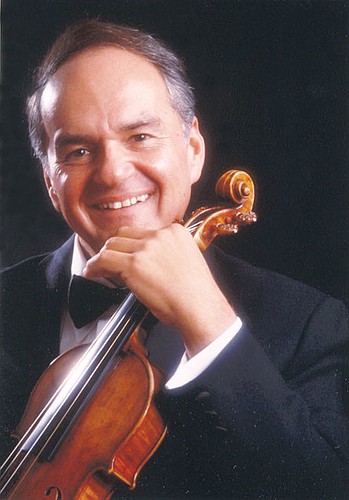- November 27, 2024
-
-
Loading

Loading

The Sarasota Orchestra opened its new season with a program of crowd-pleasers by Rossini, Vivaldi and Beethoven, under the direction of another audience favorite, conductor-violinist Jaime Laredo. We all stood for the tradition of the national anthem before the actual program, but, this time, 15-year-old Sarasota sweetheart soprano Maria Wirries sang it with such poise and beauty of voice, we wondered if we should just cheer and leave then and there. We cheered, but we also stayed and heard an orchestra that shimmered. Let me count the ways.
For these ears, the high point of the concert (we went to the Sunday afternoon performance) was Vivaldi’s “Four Seasons.” We hear the individual seasons regularly enough on radio broadcasts, but a complete performance isn’t heard all that often these days. It was the tradition until, say, mid-19th century, for the concertmaster to “lead” the orchestra from his chair, so it was no surprise that Laredo, a consummate chamber musician, chose to both conduct and play the solo portions, albeit standing at the front of the group. The all-string ensemble with continuo made positively riveting music: clean, pure and translucent with every player positively wrapped up in matching tone for tone and sound for sound.
Laredo presented the kind of purity that transcends technique, and, if a note was dropped now and then, it didn’t matter, because the overall impression was mesmerizing.
Listen to performances of this beloved work and you’ll hear something different every time, but I’ve never heard “Winter” more effectively portrayed than when Laredo had the orchestra sound like frost etched on a windowpane near Christmas.
Laredo was so masterful a leader in the Vivaldi, I was almost sorry he didn’t lead (conduct) the orchestra from the concertmaster’s chair (no insult meant to the wonderful Dan Jordan!) during the rest of the performance.
The reading of Rossini’s overture to “L’italiana in Algeri” had wonderful contrasts and some splendid solo lines coming from the wind section, along with a really strong, unified and sonorous sound in the strings. But it lacked a certain champagne-like bubbly fun that defines Rossini comic overtures.
The final work, Beethoven’s Symphony No. 7, was faster than I’m used to hearing and was almost the complete antithesis of the Vivaldi, seemingly without color or interest. But the main problem was the lack of tension and definition given to the players from the podium. There are times the strings need to play second fiddle to the brass but, in this performance, every line was the same, thus producing a blur of sound rather than the delineation and clarity so needed in Beethoven.